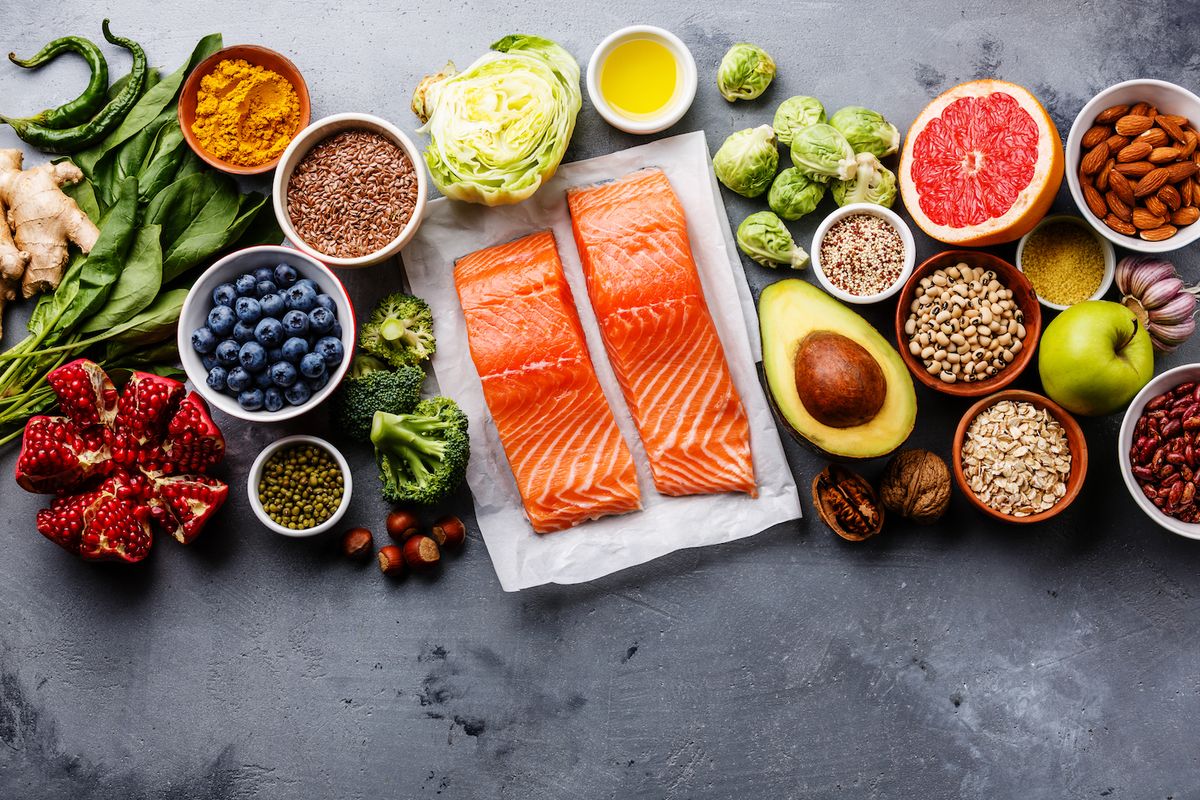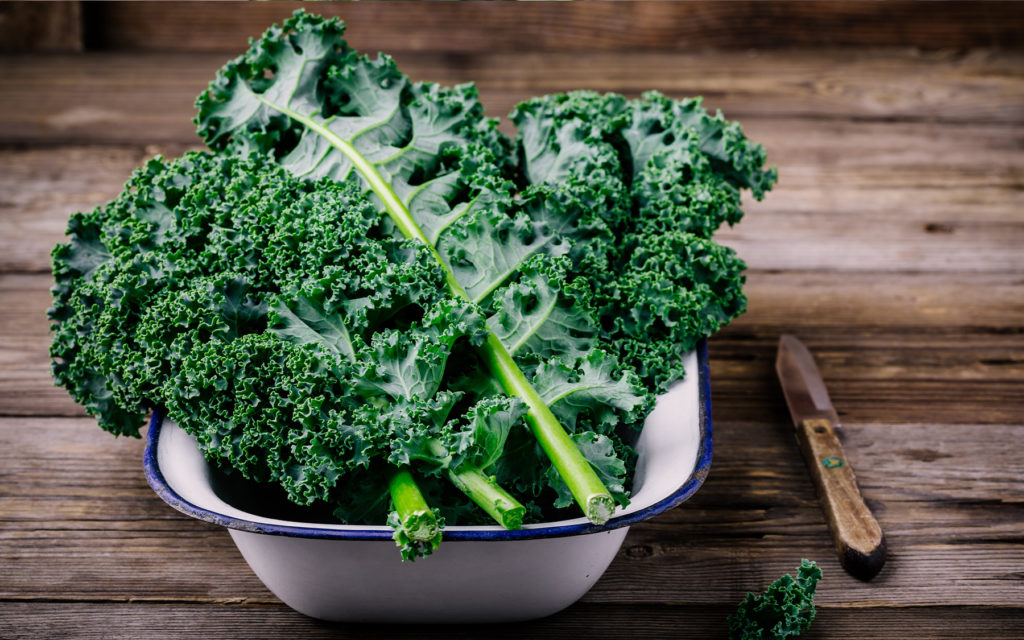The Science Behind Superfoods: Are They Really That Super?
Superfoods have become a buzzword in the health and wellness industry, often touted as miracle ingredients that can enhance health and prevent disease. But what is the science behind these claims? Are superfoods truly deserving of their exalted status, or is it all just marketing hype?
This article delves into the scientific evidence behind superfoods, exploring their nutritional benefits, potential health impacts, and separating fact from fiction.
Understanding Superfoods
What Are Superfoods?
 Superfoods are nutrient-rich foods that are considered especially beneficial for health and well-being. They are typically high in vitamins, minerals, antioxidants, and other essential nutrients. Common examples include blueberries, salmon, kale, and quinoa.
Superfoods are nutrient-rich foods that are considered especially beneficial for health and well-being. They are typically high in vitamins, minerals, antioxidants, and other essential nutrients. Common examples include blueberries, salmon, kale, and quinoa.
These foods are often promoted for their ability to boost energy, improve immune function, and reduce the risk of chronic diseases.
The Nutrient Density Factor
One of the primary reasons superfoods are celebrated is their nutrient density. Nutrient density refers to the amount of essential nutrients a food contains relative to its calorie content. Superfoods pack a significant amount of vitamins, minerals, and antioxidants into relatively few calories, making them an efficient way to meet daily nutritional needs without consuming excess calories.
The Antioxidant Advantage
Many superfoods are rich in antioxidants, compounds that help neutralize harmful free radicals in the body. Free radicals are unstable molecules that can damage cells and contribute to aging and diseases such as cancer and heart disease.
Antioxidants like vitamin C, vitamin E, and beta-carotene, found abundantly in superfoods, play a crucial role in protecting the body from oxidative stress.
The Science of Superfoods
Blueberries: A Case Study
Blueberries are often hailed as a quintessential superfood. They are packed with antioxidants, particularly anthocyanins, which give them their deep blue color. Research has shown that blueberries can improve brain function, support heart health, and reduce inflammation.
A study published in the "Journal of Agricultural and Food Chemistry" found that blueberries can enhance memory and cognitive function in older adults . Another study in the "American Journal of Clinical Nutrition" reported that regular consumption of blueberries is associated with a reduced risk of heart attacks .
Salmon: Omega-3 Powerhouse
 Salmon is revered for its high content of omega-3 fatty acids, which are essential for brain health, reducing inflammation, and supporting cardiovascular health. Omega-3s, particularly EPA and DHA, found in fatty fish like salmon, are linked to numerous health benefits.
Salmon is revered for its high content of omega-3 fatty acids, which are essential for brain health, reducing inflammation, and supporting cardiovascular health. Omega-3s, particularly EPA and DHA, found in fatty fish like salmon, are linked to numerous health benefits.
Research published in "JAMA Network Open" indicates that omega-3 supplementation can lower the risk of heart disease and stroke . Additionally, a study in "Neurology" suggests that higher levels of omega-3s in the blood are associated with a lower risk of Alzheimer's disease .
Kale: The Nutrient Powerhouse
 Kale, a leafy green vegetable, is rich in vitamins A, C, and K, as well as calcium, fiber, and numerous phytonutrients. Its high nutrient density makes it a valuable addition to any diet.
Kale, a leafy green vegetable, is rich in vitamins A, C, and K, as well as calcium, fiber, and numerous phytonutrients. Its high nutrient density makes it a valuable addition to any diet.
A study in "Food Chemistry" highlights the antioxidant properties of kale, which can help protect against cellular damage and inflammation.
Furthermore, research in the "Journal of the Academy of Nutrition and Dietetics" suggests that regular consumption of kale can improve lipid profiles and lower cholesterol levels .
Quinoa: The Complete Protein
Quinoa is a grain-like seed that is unique among plant foods because it contains all nine essential amino acids, making it a complete protein. It is also high in fiber, magnesium, and iron.
Research in the "Journal of Nutrition" demonstrates that quinoa can improve metabolic health by reducing blood sugar and insulin levels . Additionally, a study in the "British Journal of Nutrition" found that quinoa consumption can lower the risk of chronic diseases like type 2 diabetes and cardiovascular disease .
The Potential Pitfalls
Overhyped Claims
While the benefits of superfoods are supported by scientific evidence, some claims are exaggerated or not backed by research. Marketing often plays a significant role in the popularity of superfoods, sometimes leading to unrealistic expectations.
For example, while goji berries and acai berries are nutritious, their purported abilities to cure cancer or other serious illnesses lack substantial scientific support.
Accessibility and Cost
Superfoods can be expensive and are not always accessible to everyone. The high cost of foods like organic kale or wild-caught salmon can be a barrier for many people. It's important to recognize that a healthy diet does not require exclusive reliance on superfoods.
Many common and affordable foods, such as beans, oats, and carrots, are also highly nutritious and beneficial for health.
Balanced Diets Are Key
Focusing solely on superfoods can detract from the importance of a balanced, varied diet. No single food can provide all the nutrients needed for optimal health.
It's crucial to consume a wide range of fruits, vegetables, whole grains, lean proteins, and healthy fats to ensure comprehensive nutrition.
Practical Tips for Incorporating Superfoods
Diversify Your Diet
Incorporating a variety of superfoods into your diet can help you reap their benefits without relying too heavily on any one item. Rotate between different fruits, vegetables, whole grains, and proteins to ensure a diverse intake of nutrients.
Prioritize Whole Foods
While superfoods are beneficial, whole, minimally processed foods should form the foundation of your diet. Focus on fresh produce, whole grains, nuts, seeds, and lean proteins. These foods provide essential nutrients without the added sugars, salts, and fats found in many processed foods.
Budget-Friendly Options
Eating healthy doesn't have to be expensive. Frozen fruits and vegetables, canned beans, and bulk whole grains are cost-effective alternatives that offer similar nutritional benefits as their fresh counterparts. Look for seasonal produce and sales to make superfoods more affordable.
Mindful Consumption
Be mindful of portion sizes and avoid overconsumption of any one superfood. Balance is key to a healthy diet. Pair superfoods with other nutrient-dense foods to create well-rounded meals that support overall health.
Conclusion
The science behind superfoods supports their status as nutrient-dense foods that can contribute to better health. However, it's essential to approach them with a balanced perspective. While they offer significant health benefits, superfoods should be part of a varied and balanced diet, not a replacement for it. By understanding the true value of superfoods and incorporating them wisely into your diet, you can enhance your nutrition and overall well-being.
Sources
American Journal of Clinical Nutrition
JAMA Network Open
Food Chemistry
Journal of the Academy of Nutrition and Dietetics







































![[LIVE] Engage2Earn: Save our PBS from Trump](https://cdn.bulbapp.io/frontend/images/c23a1a05-c831-4c66-a1d1-96b700ef0450/1)
